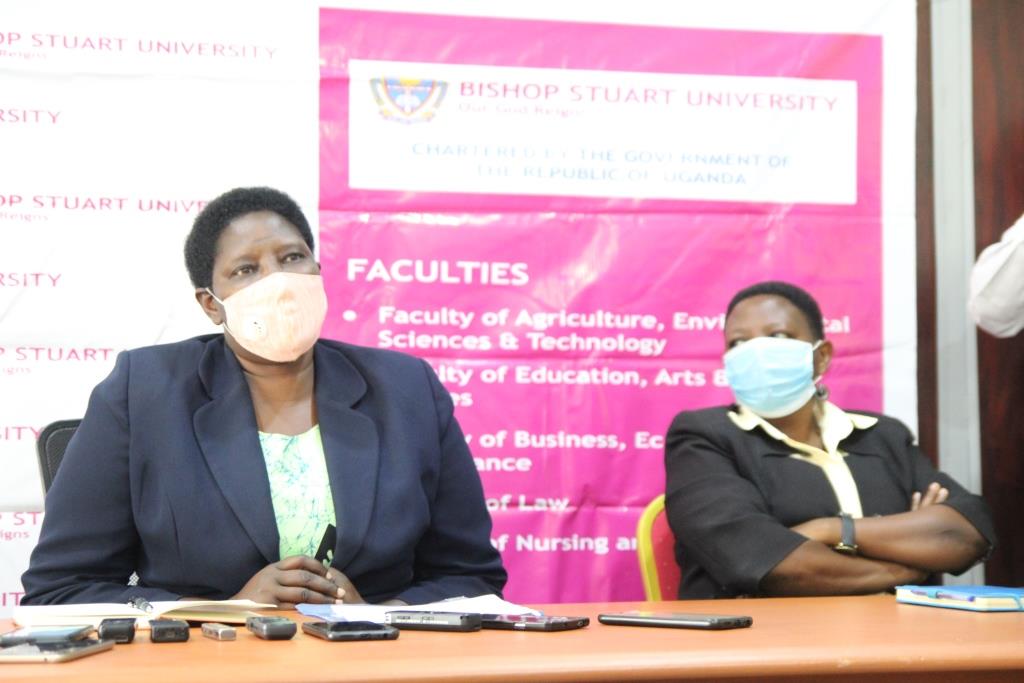Bishop Stuart University has put in place collaborations with more than 50 cooperatives where their students can go for hands-on internship practice and skills training.
The revelation was made last week by Ass. Prof. Gershom Atukunda, the university’s Dean for the Faculty of Business Economics.
“We signed MoUs with over 50 cooperatives around Ankole so that our students do their internship on their farms and it’s farmers who will evaluate them,” Atukunda explained.
The move is part of the institution’s shift from the four-wall classroom model to the field-classroom model that aims to train hands-on graduates for the African market.
“The farmers will be the professors to enable us produce quality skilled graduates in the fields of agriculture and cooperatives,” he said, adding that students must satisfy the farmers’ needs as they also help the students to reach where they want to be.
Embracing online learning
Meanwhile, as the COVID-19 pandemic continues to haunt institutions, the university has adopted e-learning technology to enable students continue their studies online.
According to Prof Mauda Kamatenesi, the Vice Chancellor, Bishop Stuart University, the institution recently received official approval from the National Council for Higher Education (NCHE) to conduct an online teaching system.
“It is now a new era of information which is going to be characterized by digital information. With my science background I don’t see COVID-19 ending soon and the world cannot stop because of COVID-19,” Kamatenesi said.
The e-system, dubbed ODEL (Open distance e-learning) platform, will facilitate learning for continuing students in 89 programs.
Some of the courses to be taught online include; B.A. of Cooperatives’ Management and Development, PhD in Agriculture and Community Innovation, Master of Agriculture and Rural Innovation, Bachelor of Agriculture and Community Management, MSc. in Climate Change And Food Security among others.
The online program will start on November 2, 2020 and each student is required to own a smart phone, laptop or tablet in order to access the classes.
The Vice Chancellor urged lecturers and students to take up online studies.
“We shall be conducting trainings and running meetings online, so if you do not embrace it, you will be left behind,” she cautioned.
“I have already directed all my staff to upload all their material online and develop modules in the system. Any university that is not ready to endorse the fourth industrial revolution is likely not to survive,” the VC said, citing banks which leveraged a robust digital/ e-banking system to continue running during the pandemic.
Kamatenesi says students will first undergo training on how to use the technology, then receive handouts to ensure a smooth transition into e-learning.
“The ultimate goal is to migrate to blended learning” the Vice Chancellor said
Addressing cost concerns related to adopting the new technology, Prof. Kamatenesi suggested that the cost of acquiring new gadgets would be offset by savings on school uniform and other items like books and pens.
Buy your copy of thecooperator magazine from one of our country- wide vending points or an e-copy on emag.thecooperator.news
